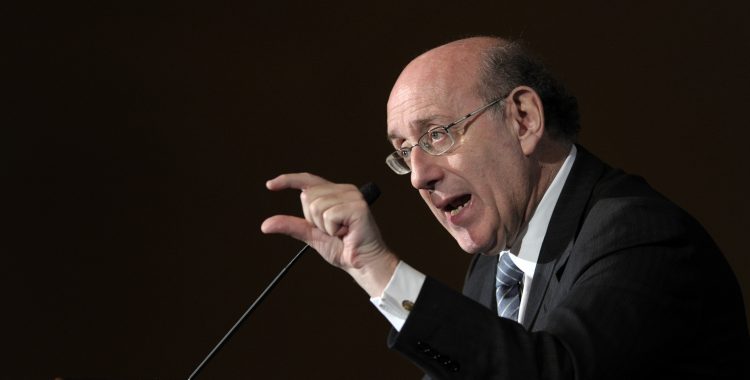In September, a representative for bishops in six California dioceses will begin mailing out information packages to survivors of clergy sex abuse.
I am not a fan of these programs at all. Having seen why these programs started and how they operated in New York and other areas, we know how the bishops use them to keep perpetrators hidden and kids in danger of abuse. You can read my blog series about the New York Independent Reconciliation and Compensation Programs here. The plan administrators for California are the same—Ken Feinberg (pictured above) and Camille Biros—as New York.
If you get one of these packages, what should you do?
DO NOT fill it out and send it back in without FIRST talking to a lawyer. There are lawyers who specialize in clergy sex abuse cases and have handled IRCP cases that have eventually turned into lawsuits. Remember, each diocese has a cadre of lawyers to defend their every interest. You should at least have one on your side.
What are these programs?
These compensation programs are the bishops’ way of getting ahead of statute of limitation reform. First implemented in New York when legislative change was on the horizon and bishops anticipated of flood of sex abuse and cover-up lawsuits, bishops offer these programs of “quick cash” in order to get survivors to sign away their rights and allow the church to keep their secrets.
After New York’s civil window opened in August, hundreds of child sex abuse and cover-up lawsuits have been filed statewide, including many against priests still working in parishes and current and former bishops. We don’t know if these men had been named in IRCP complaints because the bishops will not (and are not required to) tell us.
Why are the bishops doing it now?
The bishops in California fear that the same legislative reform that we saw in New York will happen in California within the next year.
Why aren’t all California dioceses participating?
Your guess is as good as mine. If you have any good intel, let me know.
The dioceses that ARE participating are Los Angeles, Orange, Sacramento, San Bernardino, San Diego, and Fresno.
What should you do if you get a package?
The package may arrive as a surprise. You may or may not have told your family members. People in your life may end up finding out about something that you have been keeping to yourself for a long, long time.
First: Remember, the abuse was not your fault. You were a child and it was a crime. This package is an intrusion, and I am sorry that it had to show up this way. I really don’t know of a better way to do it.
Next: Take a deep breath. Open it and read what it inside. Hiding or ignoring the envelope will not make the pain any easier. Nor will it make your life “business as usual.” You can only heal a wound by cleaning it.
Then, call a lawyer. Do your research. Ask me. Talk to the Crime Victim Bar Association. Talk to someone who has handled these cases before against the Catholic Church.
Who qualifies for these programs?
We don’t know. Every diocese in New York was different. Victims of religious order priests (Jesuits, Norbertines, etc) never qualified, but sometimes victims of deacons did. Each diocese also had a different protocol.
Do I think that no one should participate?
In a perfect world, I would tell every survivor to tell the bishops to pound sand. But it’s not a perfect world. Talk to a lawyer. Only you know your predicament. Only you know what you can withstand.
I will say this: every survivor I talk to comes forward so that they can expose their perpetrator, expose the cover-up, and ensure that what happened to them never happens to another child. Very little of that is possible with a compensation program.
Stay tuned here for more information. And if you get a package, let me know.

The Independent Compensation Program for the Los Angeles Archdiocese allows claimants to speak with the administrators if they choose to. My claim is new so there is no previous paperwork for the administrators to refer to before making their decision on my “credibility”. Do you think it would be a good idea for me to speak with one of the administrators to reinforce my claim?
Mary –
I always suggest talking to a lawyer before engaging in any business with the Archdiocese of their plan administrators. Feel free to email me personally at jcasteix (at) gmail.com if you want to discuss further.